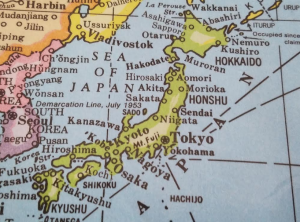By NewsDesk @bactiman63
This week, the Centers for Disease Control and Prevention (CDC) reviewed a travel notice last updated in March concerning travel to Japan and the rubella outbreak.

Travelers to Japan should make sure they are vaccinated against rubella with the MMR (measles, mumps, and rubella) vaccine before travel, the federal health agency notes.
According to the National Institute of Infectious Diseases in Tokyo, 2,039 rubella cases have been reported through the end of July, with most cases continue to be reported in the Kanto region (Tokyo, Kanagawa, Chiba, and Saitama).
Rubella is a contagious disease caused by a virus. Most people who get rubella usually have a mild illness, with symptoms that can include a low-grade fever, sore throat, and a rash that starts on the face and spreads to the rest of the body.
Rubella can cause a miscarriage or serious birth defects in a developing baby if a woman is infected while she is pregnant. The best protection against rubella is MMR (measles-mumps-rubella) vaccine.
CDC says to protect yourself:
- Make sure you are fully vaccinated or otherwise protected against rubella.
- People who cannot show that they were vaccinated or are otherwise protected against rubella should get vaccinated before leaving the United States:
- Infants (6–11 months of age) should have 1 dose of MMR (measles, mumps, and rubella) vaccine.Learn more about Nighttime Clear Aligners™ at SmileDirectClub
- Children in the United States routinely receive MMR vaccination at age 12–15 months.
- Adults and children 1 year of age or older should have 2 doses of MMR vaccine separated by at least 28 days.
- Certain groups of people should not get the MMR vaccine.
- Avoid contact with people who are sick.
Related:
- Malaysia: Another rabies death in Sarawak
- Ukraine Health Ministry: Measles cases rising again
- Denver: First Creek at DEN open space closed due to plague
- CDC reiterates travel notice for Venezuela: Measles, diphtheria and malaria
- New Hampshire: Kingston resident contracts both Powassan virus and Jamestown Canyon virus
- Rat hepatitis E: New human case investigated in Hong Kong
- African swine fever in Asia: One year since first outbreak

